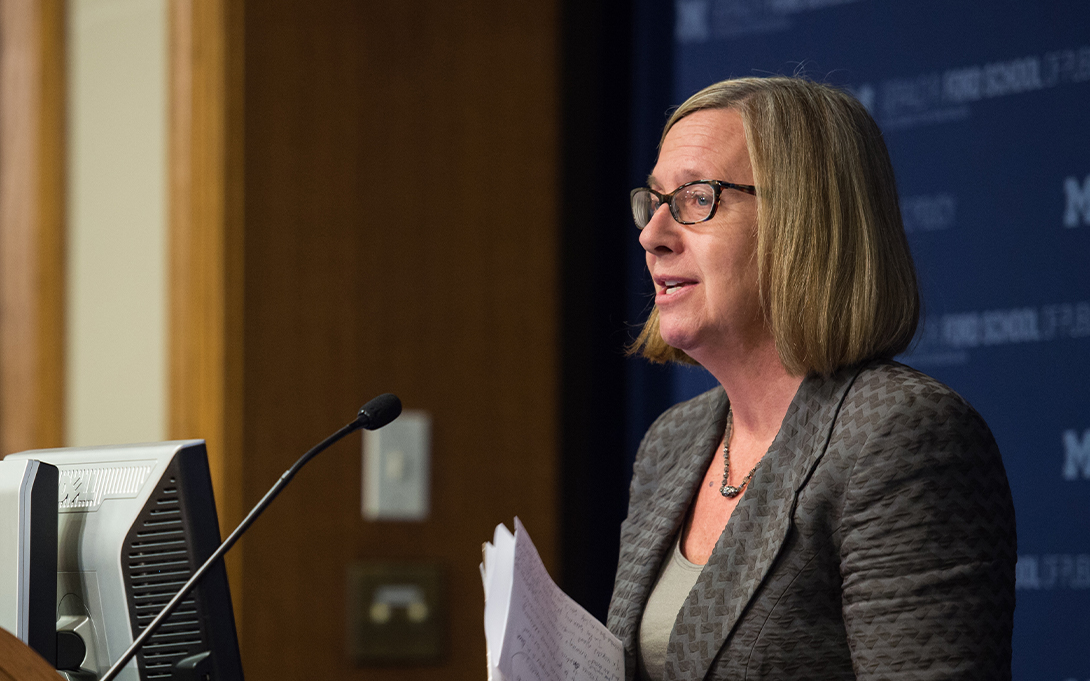
Professor Paula Lantz contributed her expertise to a recently released National Academies of Sciences, Engineering, and Medicine consensus report that informed the U.S. Department of Health and Human Services (HHS) publication Leading Health Indicators (LHIs) for Healthy People 2030.
The consensus report, “Leading Health Indicators 2030: Advancing Health, Equity, and Well-Being”, recommends a total of 34 LHIs including 15 new ones that “focus more on the social and other circumstances that shape health, including poverty and neighborhood disinvestment” than in previous years, according to the January 22 National Academies press release announcing the report.
“The leading health indicators the committee has recommended represent a fundamental transformation in thinking on how best to advance the nation’s health,” said Lantz. “Pivoting from specific indicators of health care delivery and individual behaviors, to how social environments impact the way Americans live, will reorient priorities and policy responses to the many social factors that adversely impact the lives and health of poor and marginalized communities.”
Along with important measures regarding leading causes of mortality, health care access/use, and health risk behaviors like smoking and drug use are some new LHI recommendations including measures of childrens’ reading levels, affordable housing, food security, and civic engagement.
According to the National Academies, “HHS’ Healthy People initiative [launched in 1979], is designed to identify the major health concerns facing the nation, set measurable objectives and goals for health promotion and disease prevention, and drive multiple sectors to take action.” As a result, “many state, local, and tribal public health departments align their priorities with those outlined in Healthy People” and will set national objectives for improving the health of all Americans.
A more detailed article by the National Academies on the work and advice from the ad-hoc committee is available here.
The committee’s full report is here.
Paula Lantz is the associate dean for academic affairs and the James B. Hudak Professor of Health Policy at the Ford School. She also holds an appointment as professor of health management and policy at the School of Public Health. Lantz, a social demographer, studies the role of public policy in improving population health and reducing social disparities in health. Lantz is currently engaged in research regarding the potential for and challenges associated with using social impact bonds to fund public/private partnerships aimed at improving health in low-income populations, including Medicaid beneficiaries. An elected member of the National Academy of Social Insurance and the National Academy of Medicine, Lantz received an MA in sociology from Washington University, St. Louis, and an MS in epidemiology and PhD in sociology from the University of Wisconsin.
